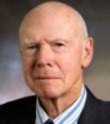Expert Panel-Fellows of the AIIA
|
 Hilary Charlesworth FAIIA-Professor, ANU; Director of Centre for International Governance and Justice Hilary Charlesworth FAIIA-Professor, ANU; Director of Centre for International Governance and Justice |
 Jocelyn Chey AM FAIIA-Visiting Professor, University of Sydney; former Consul-General in Hong Kong Jocelyn Chey AM FAIIA-Visiting Professor, University of Sydney; former Consul-General in Hong Kong |
 James Cotton FAIIA-Emeritus Professor at the University of NSW James Cotton FAIIA-Emeritus Professor at the University of NSW |
 Rawdon Dalrymple AO FAIIA-Former Visiting Professor, University of Sydney; Chairman of ASEAN Focus Group Ltd Rawdon Dalrymple AO FAIIA-Former Visiting Professor, University of Sydney; Chairman of ASEAN Focus Group Ltd |
 Graeme Dobell FAIIA-Journalist Fellow, Australian Strategic Policy Institute Graeme Dobell FAIIA-Journalist Fellow, Australian Strategic Policy Institute |
 Erika Feller FAIIA-Former UNHCR Assistant High Commissioner for Protection Erika Feller FAIIA-Former UNHCR Assistant High Commissioner for Protection |
 Janet Hunt FAIIA-Former Head of the Australian Council for Overseas Aid Janet Hunt FAIIA-Former Head of the Australian Council for Overseas Aid |
 James Ingram AO FAIIA-Former Diplomat and Head of the UN World Food Program James Ingram AO FAIIA-Former Diplomat and Head of the UN World Food Program |
 John McCarthy AO FAIIA-Former Ambassador to Japan, Indonesia, the United States, Thailand, Mexico and Vietnam John McCarthy AO FAIIA-Former Ambassador to Japan, Indonesia, the United States, Thailand, Mexico and Vietnam |
 Robert O’Neill FAIIA– Former Chichele Professor of the History of War, Oxford University Robert O’Neill FAIIA– Former Chichele Professor of the History of War, Oxford University |
 Garry Woodard FAIIA-Former Diplomat and Senior Fellow, University of Melbourne Garry Woodard FAIIA-Former Diplomat and Senior Fellow, University of Melbourne |
 Richard Woolcott FAIIA-Former Secretary of the Department of Foreign Affairs and Trade Richard Woolcott FAIIA-Former Secretary of the Department of Foreign Affairs and Trade |
Question: Is China destabilising Asia?

Rawdon Dalrymple AO FAIIA |
Having just returned from a month in China my thinking in the context of this question is the impression I gained of the intensity of the Chinese hatred of Japan. This is stimulated and fanned by a relentless Government/Party campaign from schools through to all the state-controlled media. Otherwise sensible and friendly guides told us they hated Japan (in one or two cases with extraordinary emotional intensity). We were taken on the May Day holiday to the Nanjing Massacre Museum which was absolutely packed. It tells an appalling story and it is not surprising that any Chinese person exposed to it would be very bitter. But it is just one element of what appears to be a relentless campaign to stimulate anti-Japanese feeling. Even the English language CCTV (government) news broadcasts carried anti-Japanese material. The Abe government must be well-informed on all of this and it might be part of the reason for that government’s attempt to lift the constraints on Japan’s defence capability. That in turn is quoted in China as evidence that Japan has not changed. Chinese people are also told that the arguments with Viet Nam and the Philippines about Chinese assertion on the “Nine Dot Line” do not reflect the feelings of the Vietnamese and Philippines people but are organised by the United States.The answer to the burning question is “yes” and the rest of Asia looks anxiously to the United States as China develops very sophisticated weapons capabilities unmatched by any other regional country or group of countries. |
 Garry Woodard FAIIA Garry Woodard FAIIA
|
Rawdon Dalrymple reminds us that Chinese feelings about Japan’s unexpiated war guilt and apprehension about the resurgence of militarism which inflicted sufferings comparable with those the Russians suffered at German hands run deep. I could give first-hand examples of both which while 35 years old, still I feel sure, are echoed within the leadership. Popular emotions are readily exploitable by the Party to create unity for either domestic or international purposes. At present there are plenty of those which might throw light on China’s conduct: too many to explore here.The plainest target is Abe’s Japan, on display making a pitch for regional acceptance as a security guarantor at the Shangri-La Conference. How proud its father Bob O’Neill must have been to see it becoming the tilting-arena for a monumental strategic struggle. Implementation of Abe’s policies on rearmament, including revision of the Constitution, threaten to destroy the basis for the Mao-Nixon accord of 1972 under which China deferred final reunification (of Taiwan) while the US kept Japan under control. In this tussle of wills I find many common features with the Berlin crisis over half a century ago, which perennial insider Paul Nitze always claimed brought the world closer to nuclear catastrophe than the Cuban missile crisis a year later. The Russians had a serious concern that West Germany under Adenauer and scary Defence Minister Franz-Josef Strauss would become a nuclear power. It seemed to be heading in this direction with Eisenhower’s acquiescence. The advent of an untried new president, who almost immediately appeared to show weakness in the Bay of Pigs fiasco in America’s backyard, heightened Khrushchev’s apprehensions (while possibly opening up opportunities he could exploit). A nuclear-armed Germany would pose a direct threat and also upset the balance; the genie would be out of the bottle. NATO, instead of acting under American leadership as a brake on West Germany, might become its pawn. Dominoes could topple (Ulbricht was as unpopular as Kim Jong-un is).How Kennedy re-asserted American leadership with a combination of firmness (first with the adversary then with allies) and flexibility (involving a new strategy of graduated deterrence based on a conventional build-up and intensive diplomacy) offers lessons for Obama. The crisis was resolved, essentially returning to the status quo, but underwritten by a grotesque Wall.In London I kibitzed on Britain’s influential role; the advocates of ‘a big Australia’ would presumably want us to play such a role today. |
 James Cotton FAIIA James Cotton FAIIA |
In analyses of the current American ‘pivot’ (or rebalance), adverse critics point either to the lack of resources (in the era of budget ‘sequestration’) or to the lack of focus of the current administration or to the existence of sheer constitutional impediments, all of which prevent the United States from pursuing any clear and consistent policy in Asia. The same analysts however often critique the policy of China on the assumption they can discern the pursuit by a unitary administration in Beijing of a clear and well-conceived policy of East Asian domination.China however is an immensely (if very unevenly) wealthy, rapidly transforming, geographically diverse and economically and socially contested entity at least as complex as the United States. In some respects it is more so, since it lacks the settled constitutional order that generates at least a modicum of behavioural predictability (even if only of stasis) in the case of the United States.Now there is no doubt that there are strong interests within China that impel an assertive regional policy. Such an approach serves to justify sustained military spending; it also now functions as a rationale for the current administration given that the patriotism of the twin objectives of ‘wealth and power’ has progressively (from 1978) replaced socialism as the goal held out by the regime as its supreme (if always ultimately unattainable) legitimation.Yet treating China as a destabilising actor motivated by a single design is to ignore the many and varied interests that profit or derive advantage from regional accord. These interests include not least the many members of the current elite (and especially their offspring) who have become fabulously wealthy through the systematic engagement of China with the global financial system; amongst them may also be found significant cultural figures and some notable local elites.It should be recognised nonetheless that, as a rising power China is most likely to become more assertive in its own neighbourhood, much as the United States behaved for a century in the Caribbean; it should be recalled that even the administration of that supreme internationalist Woodrow Wilson engaged in military intervention in Mexico. But such behaviour is a long way removed from seeking to overturn the fundamentals of the prevailing regional order. It is true that the museum devoted to the Nanjing massacre is a shrine for nationalist agitation in China and that such agitation does not serve the cause of regional understanding. Nevertheless it should be kept in mind that in the museum annexed to the Yasakuni shrine in Tokyo, this episode is presented as a local rebellion suppressed by Japanese forces in the interests of restoring order. |
[really_simple_share]
Past Questions
May 9, 2014
Is the US a Dangerous Ally for Australia?
April 28, 2014
Did you find Bob Carr’s ‘Diary of a Foreign Minister’ enlightening?
April 14, 2014
Is Australia’s economic diplomacy succeeding?
April 04, 2014
Is Japan Australia’s best friend in Asia?
March 24, 2014
Three years on, has enough been done on Syria?
















